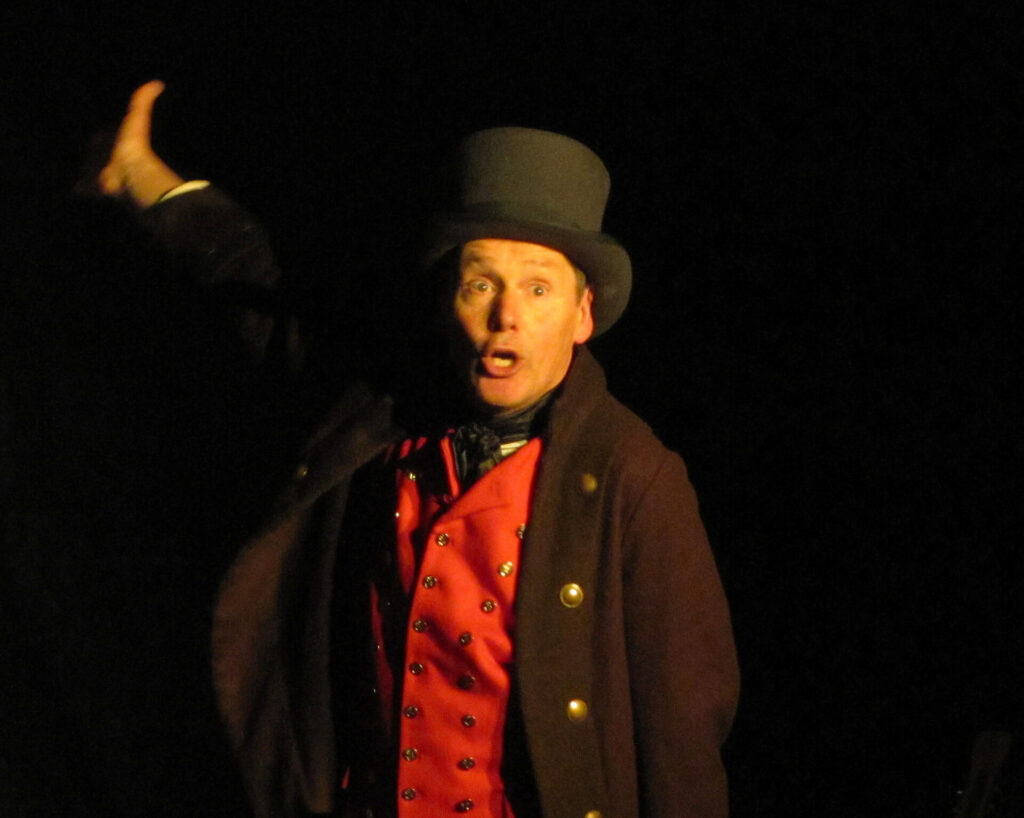
The Year Clock brings William Barnes, Dorset’s self-educated teacher and parson, to life through notes, anecdotes, newspaper reports, and personal letters either written by or about Barnes during his lifetime. Written in 2001 by Tim Laycock, the play explores the inner tensions of a highly educated man who chose to write in the rural dialect of Dorset, highlighting the contrast between the rapid industrialisation of Victorian England and the traditional way of life that was slowly disappearing – a theme with striking relevance today.
William Barnes was best known for his Dorset dialect poetry – most famously, Linden Lea, which was set to music by Ralph Vaughan Williams. However, Barnes himself regarded his work in philology – his study of more than sixty languages, and his search for the root of all speech – as his most significant achievement, particularly his Philological Grammar.
Thomas Hardy, Barnes’ contemporary and long-time friend, once described him as “the most interesting link between the past and present forms of rural life that England possessed.” Similarly, Francis Kilvert who visited Barnes at his rectory in Winterborne Came in 1874, called him “the great idyllic poet of England, half hermit, half enchanter.”
The poems and songs woven into The Year Clock were written between 1835 and 1870, with the exception of the final piece, The Geate a-Vallen To, which was dictated to his daughter shortly before his death in 1886.
Accompanied by Dorset folk music, performed on the violin and guitar by Colin Thompson, the performance is a vivid, fast-paced portrayal of Barnes’ world, offering a poignant reflection on the forces of change.
Directed by Sonia Ritter, The Year Clock is a revival that connects the past with the present – it has been performed more than 70 times to date, and could not have been written without access to the William Barnes Archive.

A funding revival
The revival of The Year Clock are more than a tribute to William Barnes – it’s part of an ongoing effort to preserve his legacy through the ‘Barnes for All!’ fundraising campaign. When Barnes passed away, he left a rich archive of writings, including poems, sermons, posters, woodcuts, and engravings. This invaluable collection offers a glimpse into Victorian Dorset and Barnes’ creative and intellectual world.
Now owned by the Dorset Museum and Art Gallery and housed at the Dorset History Centre, the collection has been cared for by the William Barnes Society for many years. The ‘Barnes for All!’ project aims to make this collection more accessible by cataloguing each item to international standards and digitising key documents for online access.
Once completed, this digital archive will open up Barnes’ life and works to a global audience. Scholars, enthusiasts and anyone interested in Barnes’ contributions as a schoolmaster, priest, poet and philologist will be able to explore his world in detail – bringing Victorian England and rural Dorset to life.
The campaign’s goal is to raise £35,000, and every penny from events like The Year Clock performance will go towards making the archive available for future generations. This project not only honours the poet himself but also preserves the cultural heritage of rural England that Barnes cherished.
24th October, Dorchester, 7pm.
Tickets £20: DorsetMuseum
3rd November, Sturminster Newton, 3pm
Tickets £20: The Exchange
To learn more or make a donation, visit williambarnessociety.org.uk



